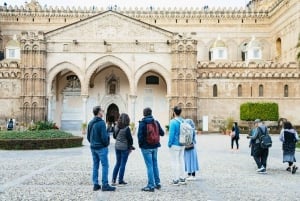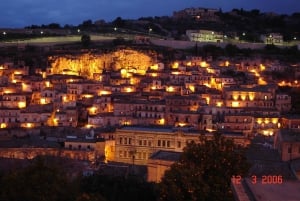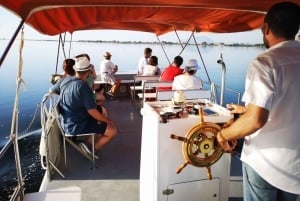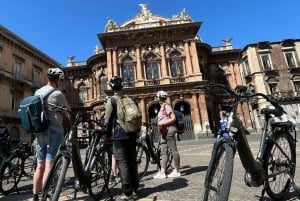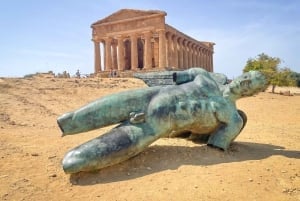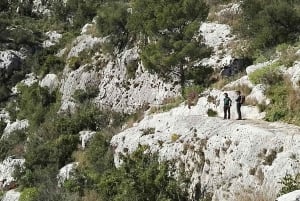Italian Language Basics
Learning Italian is one of the most a fun parts of visiting the country, but it's definitely worth noting that the majority of those in Sicily actually speak dialect and not all will understand or speak Italian. However this is not cause for throwing what Italian you know out the window, it's still worth learning to communicate as best you can. Just keep that fact in mind though when speaking to the older generation in particular, whereas younger people and those in tourist areas will speak Italian or even some English.
Here are some good phrases to learn while you're here and some words to avoid as well and other language learning tips. Above all have fun with your Italian, people will appreciate you making the effort.
There are several language schools in Sicily, providing courses adapted to all levels, offering ,accommodation activities and excursions, cooking courses and much more ot make a study-vacation more enjoyable and give students the possibility to experience Sicily to the fullest and make their stay truly unique.
Basic phrases
Learning greetings, numbers and foods are a good start to your practice of Italian. Here are some good words to know:
Greetings:
| Hello (morning) | Buongiorno |
| Hello (evening) | Buonasera |
| Hi | Ciao |
| Goodbye | Arriverdeci |
Note: Try to use the formal hellos and goodbyes with older people and not simply ciao.
| Yes | Si |
| No | No |
| Please | Per favore / per piacere |
| Thank you | Grazie |
| That’s fine | Va bene / prego |
| Excuse me | Mi scusi / permesso |
Numbers:
| Zero | Zero |
| One | Uno |
| Two | Due |
| Three | Tre |
| Four | Quattro |
| Five | Cinque |
| Six | Sei |
| Seven | Sette |
| Eight | Otto |
| Nine | Nove |
| Ten | Dieci |
Food:
| Breakfast | (prima) Colazione |
| Lunch | Pranzo |
| Dinner | Cena |
| Restaurant | Ristorante |
| Grocery shop | Alimentari |
Conversation:
What’s your name.............................Come ti chiami?
My name is….....................................Mi chiamo …
Where are you from?........................Di dov’e`? / Da dove sei? / Da dove viene?
I’m from… (USA, England)..............Sono di… (Stati Uniti, Inghilterra)
How old are you?............................. Quanti anni hai?
I’m … years old................................. Ho … anni
How are you?................................... .Come stai?
I’m here on holiday.......................... Sono qui in vacanza
Asking for help:
I (don’t understand).......................... Non capisco
Can you show me (on the map)..... Può mostrarmelo (sulla carta / piana)?
Do you speak English?.................... Parla Inglese?
How do you say … in Italian.............Come si dice …in Italiano?
What time is it?...................................Che ora è? / che ore sono?
What is it?........................................... Che cos’è?
Why?.................................................... Perchè?
What time does it open / close?.... A che ora apre / chiude?
Fun phrases:
Bella figura or brutta figura
This is a phrase you might often hear used around the country. It basically means a fine appearance or good impression – a very important quality in Italy as you may have realized. Unfortunately the less heeled among us tourists might also hear the phrase "bella figura" mentioned with a telling look in our direction, which means the exact opposite!
Buon appetito and Mangia senza complimenti
If you eat out in Sicily you will no doubt hear the phrase "buon appetito" at some point which basically translates as good appetite or enjoy your meal – and you most likely will! The other thing that might be said is "Mangia senza complimenti" or "no need for thanks".
Salute or Cin Cin!
This phrase is used for giving a cheers when sharing a drink with someone.
Other fun phrases to know that roll of the tongue include:
Tutto a posto? .................Is everything fine?
Va bene..............................Everything is fine
Ci vediamo....................... See you later
Meglio tardi che mai...... Better late than never
Phrases to avoid and common mistakes
While Italian might sound like a lot of words with "o" or "a" on the end of them, simply adding these to English words doesn't turn them into Italian. Similarly some people make the mistake of dropping the "os" in Spanish words to make them Italian.
As we all know there are a selection of coffees that come in all shapes, sizes and varieties. It's worth noting however that the "latte" as you may order elsewhere will only get you a glass of milk in Sicily. "Latte" means milk after all. You should also order "espresso" not "expresso" or you will again create a "brutta figura" and never order a cappuccino after dinner as it's a morning drink.
There are a lot of words that can sound the same in Italian that mean something quite different. For example you don't want to use "spogliare" (to undress) instead of "sbagliare" (to error)!
While we might use the term "al fresco" outside Italy to indicate where we want to dine, if you use this in Italy it translates as being in the cooler or jail or prison! So instead use the word "fuori" (outside).
If your Italian is getting to a proficient standard you might find yourself translating directly from English to Italian in terms of quotes and phrases. However this doesn't always work. For example in Italian they don't say "piece of cake" for something easy they say "piece of bread" and it's not "the early bird catches the worm" but "who sleeps doesn't catch fishes".
Non verbal language
As we all know a lot of talking in Italian is about gesturing and using your hands. If you really want to fit in take your hands out of your pockets and move them about as you speak. You could also learn some similar movements people make to emphasize a point you wish to make – although these can mean different things throughout the country.
Open your mouth
To speak Italian well you really need to open your mouth wide to get the right sounds. It might feel strange at first but it will improve your language skills.
All those little words
Just as in English, Italian has lots of little nonsense words that are inserted into sentences to make them sound less formal. Try to use some of these or you'll come of sounding a little stiff. Examples include "cioè", "insomma", "magari" and "comunque" – all a little hard to translate but once you've heard them you'll get the idea of how they're used.









